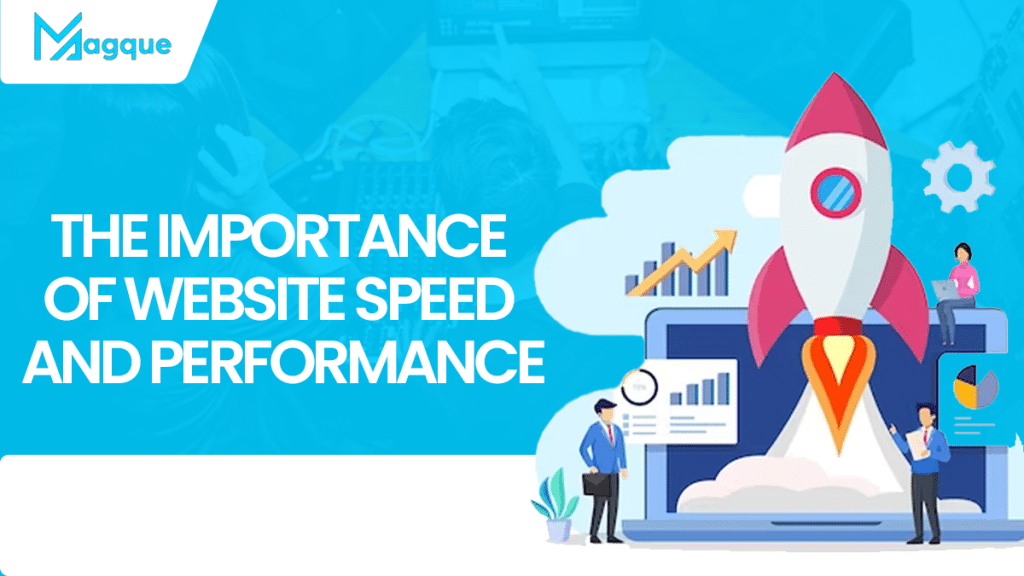The Need for Speed: Why Website Speed and Performance Matter
In today’s fast-paced digital world, a website’s speed and performance can make or break its success. Like how a well-tuned car can give you the edge in a race, a well-optimized website can propel you ahead in the competitive online landscape. So, let’s dive into the significance of website speed and performance and how they can be the turbo boost your online presence needs.
Why Does Speed Matter?
Imagine you visit a website, and it takes forever to load. Frustrating. You’re not alone. Research has shown that most users will abandon a website if it takes more than a few seconds to load. That’s the digital equivalent of slamming the door in your face!
But why does speed matter so much? Firstly, it’s all about user experience. People want information fast, and they want it now. A speedy website keeps your audience engaged and satisfied, reducing bounce rates and increasing the chances of conversion.
Secondly, speed is critical in SEO (Search Engine Optimization). Search engines like Google consider website speed when ranking pages. A sluggish site can drag your SEO rankings down, making it harder for potential customers to find you. Conversely, a fast website can help you climb the search engine ladder.
Performance: More Than Just Speed
Website performance is not only about how quickly your pages load but also how well they function once they’re loaded. A website should be smooth, responsive, and easy to navigate. Think of it like a well-oiled machine – it should work seamlessly without any hiccups.
Performance is closely tied to user satisfaction. Visitors will quickly lose trust and leave if your site is riddled with errors, broken links, or unresponsive buttons. Ensuring top-notch performance means fewer frustrated users and more happy customers.
The SEO Connection
Let’s reevaluate SEO, the holy grail of online visibility. Search engines favour websites that offer a fantastic user experience, which includes speed and performance. Google, for instance, considers page speed as a ranking factor.
A faster website not only pleases your visitors but also impresses search engine bots, leading to higher rankings. It’s a win-win situation. Plus, a speedy site means better mobile-friendliness, and we all know mobile-friendliness is another SEO must-have in today’s mobile-centric world.
Mobile Responsiveness Matters
Regarding mobile-friendliness, website speed and performance are even more critical for mobile users. Mobile devices have smaller screens and less processing power compared to desktop computers. A slow and clunky mobile site can quickly send potential customers running to your competitors.
By ensuring your website is optimized for mobile devices, you cater to a broader audience and improve your chances of success. Mobile optimization goes hand in hand with speed and performance, creating a seamless user experience across all devices.
Conclusion: Speed and Performance as Your Competitive Edge
In the digital age, where attention spans are shrinking and competition is fierce, the importance of website speed and performance cannot be overstated. They are the keys to keeping visitors engaged, ranking high on search engines, and, ultimately, achieving online success.
So, if you want to stand out in the crowded online arena and leave your competitors in the dust, invest in optimizing your website’s speed and performance. It’s not just about loading times; it’s about creating an exceptional user experience that keeps your audience returning for more.
Remember, in the race to online supremacy, the tortoise may have won in fables, but in the real digital world, the hare takes the lead – fast and steady wins the race!
And be sure to explore Magque, your go-to source for the latest and most intriguing updates in the realms of informative tips & reviews!
FAQs
Q1. Why is website speed and performance crucial for my website?
Website speed and performance are essential because they directly impact user experience. A fast-loading website keeps visitors engaged, reduces bounce rates, and increases the likelihood of conversions. Additionally, search engines consider speed when ranking sites, so it can also affect your SEO and online visibility.
Q2. How can a slow website harm my business?
A slow website can harm your business in several ways. It can frustrate visitors, leading them to abandon your site in favour of faster alternatives. This can result in lost potential customers and revenue. Slow-loading pages can also negatively impact your SEO rankings, making it harder for people to find your website through search engines.
Q3. What factors influence website speed and performance?
Several factors can influence website speed and performance, including web hosting quality, page size, image optimization, code efficiency, and server response times. Content delivery networks (CDNs) and caching techniques can also play a significant role in improving speed.
Q4. How can I test and improve my website’s speed and performance?
You can test your website’s speed and performance using tools like Google PageSpeed Insights or GTmetrix. These tools provide recommendations for improvement. You can optimize images, minimize HTTP requests, leverage browser caching, and use a reliable web hosting provider to enhance speed. Regularly monitoring your website’s performance is essential for ongoing improvement.
Q5. Is mobile performance as important as desktop performance?
Yes, mobile performance is equally important, if not more so, in today’s mobile-centric world. Many users access websites on mobile devices, and a slow or poorly optimized mobile site can lead to a high bounce rate. Google also considers mobile-friendliness when ranking websites, so ensuring a fast and responsive mobile experience is crucial for SEO and user satisfaction.
Read Also This :- Choosing the Best Web Hosting Service in 2024
